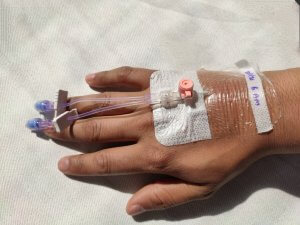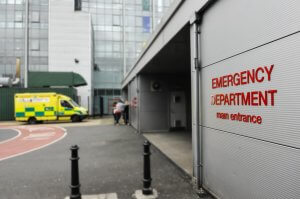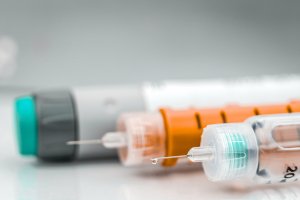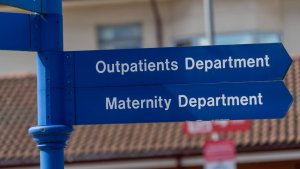Organising a Private Post Mortem
What is a Post Mortem?
A post mortem examination is the examination of the human body after death has occurred. It is sometimes known as an autopsy. The purpose of the post mortem is to determine the cause of death.
Post mortems are carried out by specialist doctors. These doctors are called pathologists and they specialize in the nature and understanding of disease.
Find Out How To Make A Medical Negligence Claim
Like most professions, pathologists have appropriate standards to adhere to and these are set by The Royal College of Pathologists, which is a professional membership organisation with over 11,000 members who are doctors or scientists working in hospitals or universities all over the UK.
Why is a Post Mortem carried out?
Post mortem examinations are carried out if the death has been referred to the coroner or the hospital has requested it.
Coroner’s Post Mortem
- The death has been reported to the Coroner, who then is of the opinion that a post mortem is necessary to determine the cause of death ie ‘if the death is referred to the coroner by the police, GP or hospital doctor’.
- A death will be referred to a Coroner if it is sudden or unexpected, violent or unnatural, an accident, if it occurred during medical treatment/surgery in hospital or the doctor treating the deceased had not seen the patient within 14 days of their death and the cause of the death is unknown.
- Interestingly, if the pathologist carrying out the post mortem at the coroner’s request, wants to take tissue samples during the post mortem examination (ie to establish cause of death) then consent from the next of kin is not required. Although the coroner must handle organs and tissue samples in accordance with the next of kin’s wishes and these samples can be kept by the coroner until after the inquest has taken place or even longer in some cases.
- If the death is treated as suspicious then the police may also need to keep samples as well as evidence to an investigation.
- If a coroners post mortem is to be carried out, the family will not be asked for permission for the post mortem examination to go ahead.
Hospital Post Mortem
- The hospital requests that it is done to provide information about the cause of death, the illness or to further medical research.
If you have concerns in relating to post mortem examination or lack of examination we can assist you. We are here to help whatever the issue may be. Call 020 7485 8811 and ask for Stephanie Prior.
Our Promise to You
- We will review your situation by advising you on the relevant procedure.
- We will not charge a fee for our time in reviewing your case.
- We can assist you with any issues that you may have regarding the complaints procedure or that you encounter in obtaining copies of your medical records/medical reports.
- We will advise you of the course of action in respect to your case.
Essential Reading
Medical Negligence News & InsightsVIEW ALL
- 9.6.2023
Early Notification Scheme – is it helping or failing...
What is the Early Notification Scheme? The NHS Early Notification Scheme (“ENS”) has reached its sixth anniversary. Established in April 2017,...
Read more - 5.6.2023
Are pharmacy closures putting patients at risk?
It has been reported in the press that chemist closures will have an impact on patients living in deprived or...
Read more - 23.3.2023
Private Pregnancy Scans and Substandard Care
In the news, it has been reported that private clinics that offer pregnancy scans to women are not meeting the...
Read more - 14.2.2023
The risk of extravasation injuries during iron infusion...
Many patients with low iron, particularly during pregnancy or postnatally, may be advised they need an iron infusion such as...
Read more - 9.11.2022
Transfer time from ambulance to A&E causing...
The Healthcare Safety Investigation Branch (HSIB) have identified that patients may come into risk of harm whilst waiting in ambulances...
Read more - 9.11.2022
Breast cancer screening mammograms and negligence
Breast cancer screening has improved significantly in the UK due to research bettering the understanding of this terrible disease, which...
Read more - 28.9.2022
Women more likely to have symptoms ignored by...
An increasing number of women in the UK feel brushed off by GPs when presenting with real symptoms, with many...
Read more - 21.9.2022
Are maternity services safe? – Part 2
In April last year I wrote a piece about government setting up a taskforce to look into why there are...
Read more - 8.9.2022
Poor interpretation of CTG can result in stillbirth...
Poor interpretation of a Cardiotocograph, more commonly known as a CTG, is a leading cause of stillbirth and brain injuries...
Read more - 9.8.2022
New interactive rating tool reveals NHS wait times...
Amidst record-breaking heatwaves and a lengthy patient waiting list due to COVID backlogs, it is not surprising that this summer...
Read more - 14.7.2022
Insulin overdose in hospitals due to limited staff...
A century ago, insulin was first used to treat a 14-year-old boy dying of type 1 diabetes A hundred years later,...
Read more - 6.7.2022
NHS aims to reduce waiting times with Elective...
The NHS recently recorded their waiting list to be at 6.5 million, a record high. Much of this backlog is due...
Read more - 29.6.2022
Nottingham Maternity: Donna Ockenden to Chair Independent Inquiry
An interim report on the state of maternity services at Nottingham University Hospitals NHS Trust has just been released. However,...
Read more - 28.4.2022
Calls for Public Inquiry into Vaginal Mesh Surgery
A leading professor from the University of Oxford has called for a public inquiry into the use of vaginal mesh...
Read more - 11.4.2022
Late Cancer Diagnosis Crisis Within NHS
The Health and Social Care Committee recently released a 52-page report on cancer services, expanding on the crisis in England (...
Read more - 6.4.2022
Stephanie Prior Comments on the Ockenden ‘Maternity Scandal’...
Following the publication of the Ockenden Report, an independent review of maternity services at Shrewsbury and Telford Hospital NHS Trust,...
Read more - 5.4.2022
NHS Gynaecology waiting lists rise due to coronavirus
It has been reported today in the press that as a consequence of the coronavirus pandemic, gynaecology waiting lists in...
Read more - 23.2.2022
Record high waiting lists put cancer patient lives...
In early January 2022 there were nearly six million people in England waiting for routine operations and treatment: a record high....
Read more - 23.2.2022
Women from ethnic minorities experience worse maternity care
It has been reported today that the government has set up a new task force to look into why there...
Read more - 17.2.2022
999 Call Handlers Maternity Instructions Report
HSIB Report on Maternity Pre-arrival Instructions from 999 Call Handlers The Healthcare Safety Investigation Branch (“HSIB”) investigate NHS maternity incidents that...
Read more - 13.1.2022
Court of Appeal Judgement on Secondary Victim Cases
Judgment was today handed down by the Court of Appeal in the cases of Paul v Royal Wolverhampton NHS Foundation...
Read more - 15.12.2021
Vaccine Related Blood Clots And Delays in Diagnosis
Deep Vein Thrombosis, Pulmonary Embolism and Vaccine Induced Blood Clots The worldwide COVID-19 immunisation programme has been in full swing...
Read more - 23.11.2021
Longer wait for ambulances endangering lives
According to recent NHS figures, in October this year patients in England who were presenting with potential heart attacks or...
Read more - 18.11.2021
How do I obtain my GP medical records...
If you want to obtain copies of your medical records from your GP or the hospital where you have been...
Read more


























